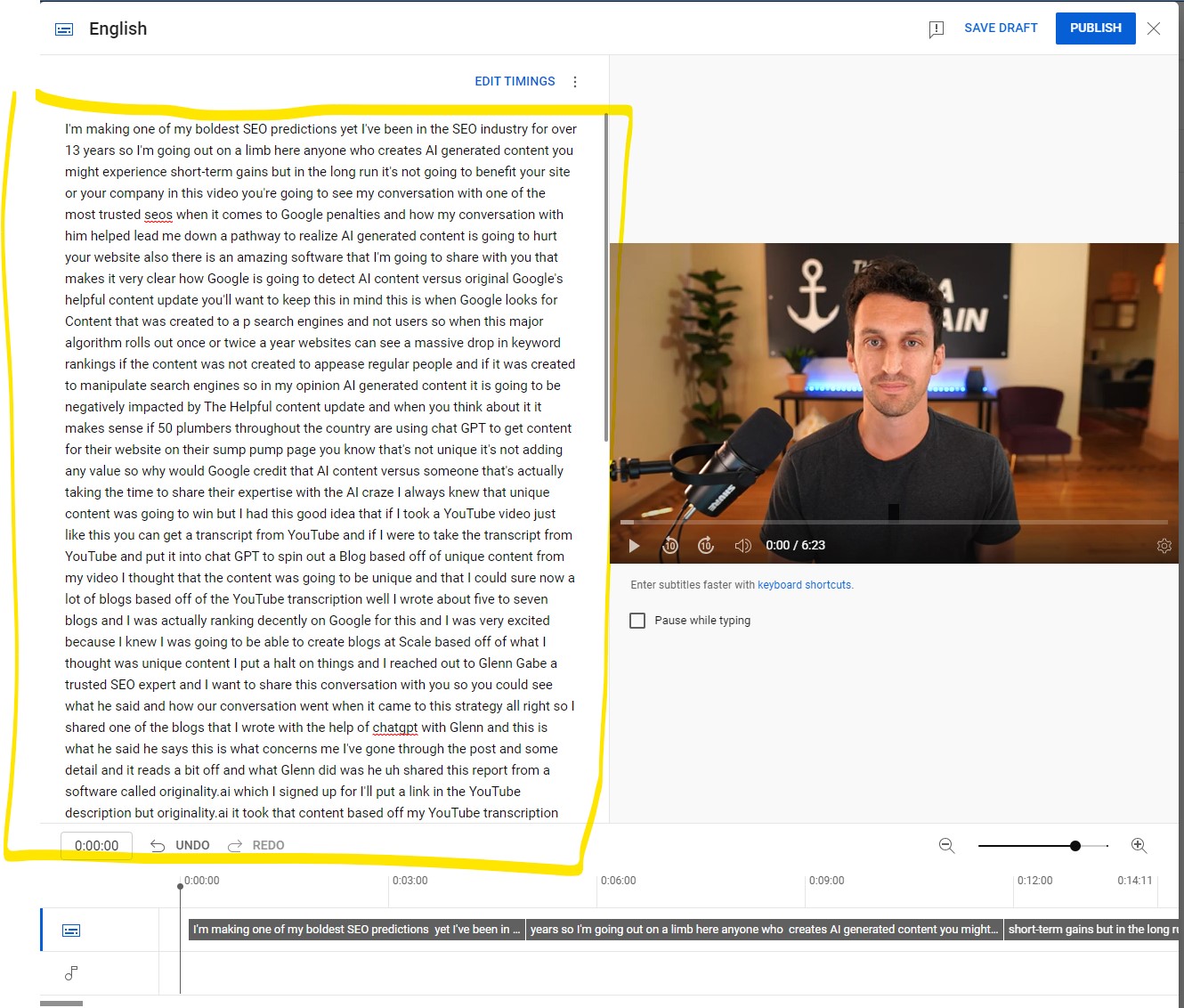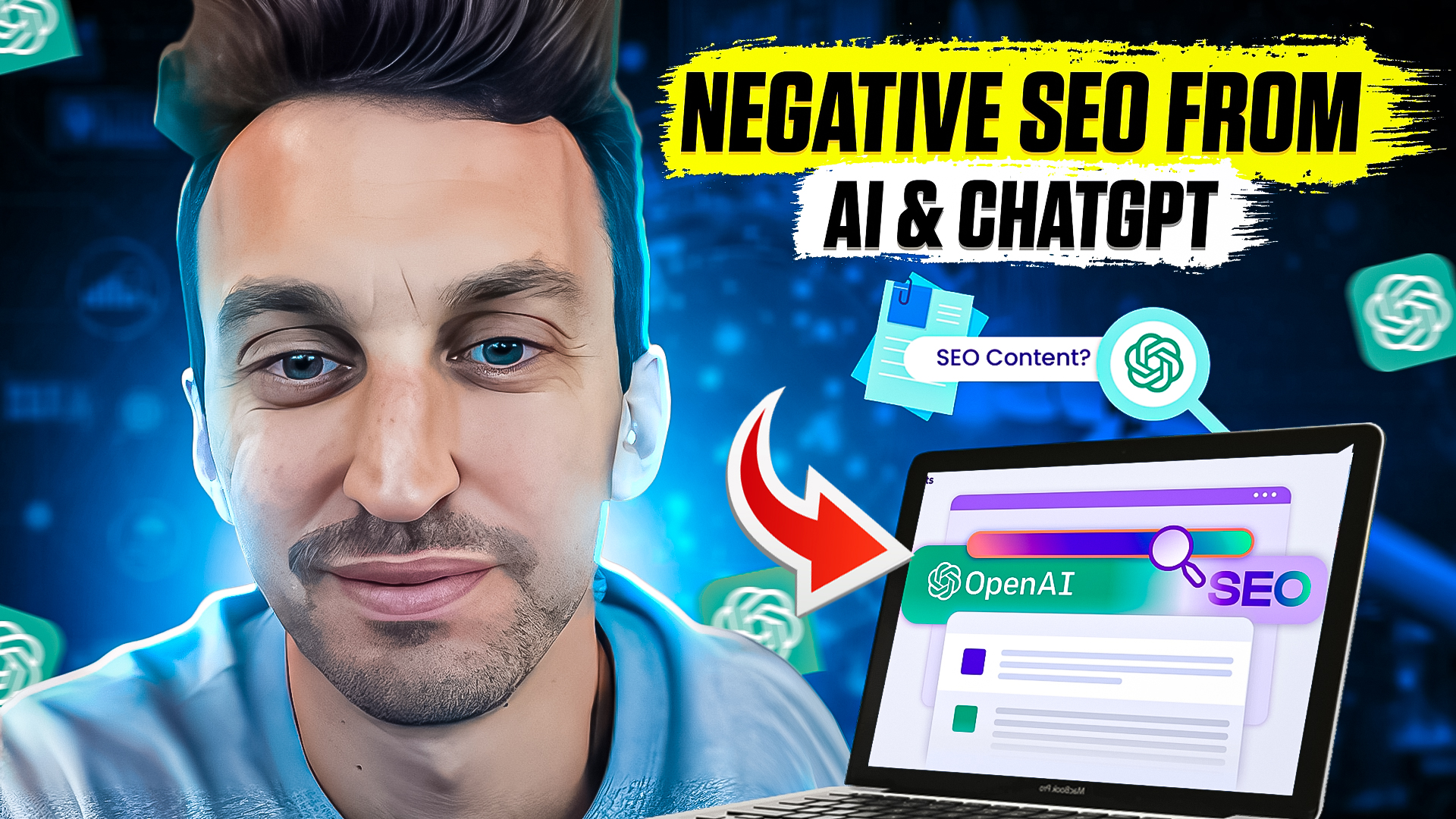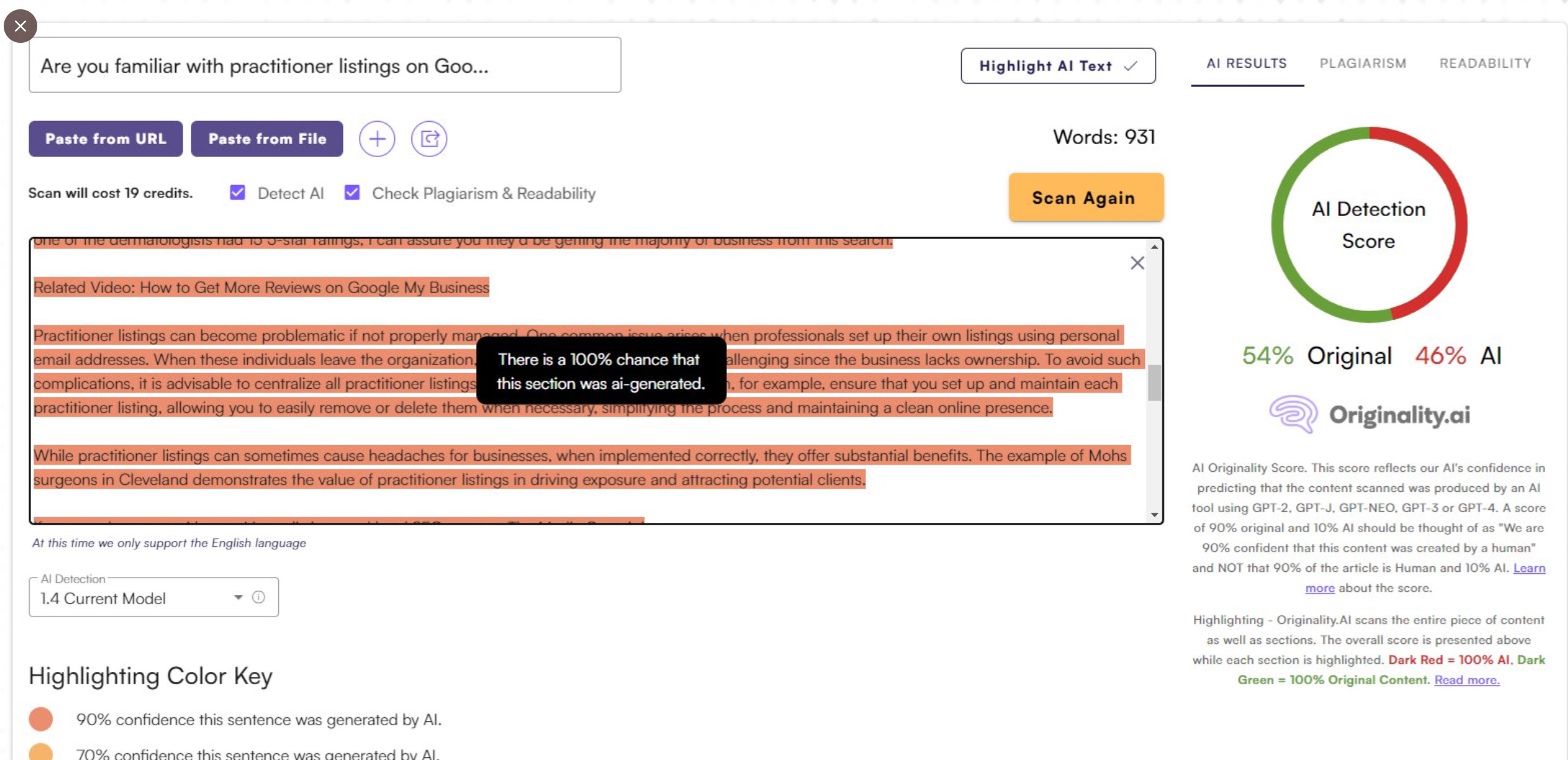AI-written content is all the craze. You can’t scroll past your social media feed without seeing an advertisement or braggadocious post about someone scaling their content creation with AI-driven content.
What if I were to tell you that AI content will hurt your SEO?
I will explain how I started going down the AI rabbit hole for my blog but quickly changed course, thanks to a conversation with one of the most well-known SEOs regarding penalty recovery.
[youtube url=”https://youtu.be/h-skccaZkVo” width=”460″ height=”320″]
What Google Says About AI Written Content
Google released the following statement regarding AI content:
- Google wants to see high-quality content, regardless of whether produced by a human or AI
- Google recommends that publishers create helpful, people-first content demonstrating expertise, experience, authoritativeness, and trustworthiness (E-E-A-T).
- Leveraging AI or automation to manipulate rankings in search results is considered a violation of Google’s guidelines
My Perspective on Google’s Statement
Many people took the first bullet point, “whether produced by a human or AI,” as the green light to move forward with AI-generated content. I think the second and third bullets are the ones to hone in on.
How can you demonstrate E-E-A-T by taking information from ChatGPT? Could AI content be helpful on your website? Absolutely. Could you tell me if it shows your experience and expertise while showcasing your authority? No, it does not.
Let’s take this blog, for example. I am including my opinion and will share stories based on expert interviews throughout the article. This is the sort of E-E-A-T content that Google is seeking. You could not replicate this article on AI since this is based on my experience and conversations.
If a plumber uses content from ChatGPT about sump pumps on their website and 50 other plumbers use the same snippet, is this showcasing E-E-A-T? I don’t believe so.
Where AI Content Could Work
If you tweak AI content, including your personal anecdotes and corresponding screenshots, this is unique content that could still rank well. You are adding value and expanding upon something which Google values. This would take time to execute.
If I’ve learned anything in SEO in my 13 years within the profession, it’s that quick wins rarely pay off. They tend to do more harm than good. If you were to create 100 articles using ChatGPT, your intention most likely is to rank well on Google, which could be deemed as manipulating rankings.
Going Down the AI Rabbit Hole Myself
I’ve been recording weekly YouTube videos for several months to gain more subscribers. I had a great idea that would kill two birds with one stone. I could take the transcription from my YouTube video and upload it into ChatGPT to help create blog content at a much faster pace. Since I was feeding ChatGPT unique content from my video transcript, I figured this would appease Google.
I took six videos and could crank out corresponding blogs within two days. I was moving at a much faster pace. I was even adding screenshots, proofing the content, and adding personal anecdotes. I was thrilled with my output.
Before proceeding onward, I had a pit in my stomach as it seemed too easy. As I mentioned earlier, strong results on Google don’t normally come at ease. I contacted Glenn Gabe, one of the most respected SEO professionals specializing in Google Penalties. After looking at one of the blogs, Glenn responded to me and said, “If you did this at scale, I would be very concerned.”

Originality.ai
Glenn took my blog to Originality.ai and sent me over results of my blog being 46% AI-generated. From the naked eye, he said it read awkwardly.
I assumed I was going above and beyond by enhancing my AI-generated content and using YouTube transcriptions. If that didn’t pass the sniff test for Glenn, I had a feeling many other people would be in trouble.
I decided to take the six AI-generated blogs and rewrite them without AI as soon as possible to avoid risks.
Helpful Content Update & Correlation with AI
Each year, Google runs one-two Helpful Content updates (HCU). A site can be promoted for quality content or demoted for low-quality content. An example of low-quality content would be thin content or duplicative content.
I started to think back to Google’s statement about AI content, and it became clear that those who use AI too much throughout their site will be negatively impacted. As of this article, there has not been a helpful content update since December 2022, before AI content became mainstream. When the next helpful content update runs, many site owners could be negatively impacted by their AI-generated content.
It’s important to remember that you can’t recover from a helpful content update until the next one rolls out. This could require webmasters to rewrite or delete so much content on their site to get back in Google’s good graces.
In Closing
It’s important to note my opinion about the future trajectory of AI-written content for SEO could be completely wrong. My competitors could outrank me greatly because they were early adaptors of AI-written website content.
Based on my conversation with Glenn, plus my intuition, I felt obliged to share how I felt. The winners will be those investing in quality content, and the losers will be those relying too heavily on AI-generated content.



